Associates and Alumni
Literacy Lab Associates and former members are listed below:
Associates
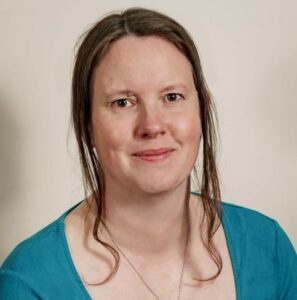
Dr Katie Cebula is a Senior Lecturer in Developmental Psychology at the University of Edinburgh. Her research focuses on neurodivergent children and young people’s experiences in schools and their relationships with family (especially siblings) and friends. She has loved fiction from a young age, and managed to sneak a course on Scottish Literature into her science-based degree in Psychology. She is currently a co-supervisor on the Narrative Fiction: Understanding Ourselves and Others project and was a Co-Investigator on the Neurodiversity and Narrative Fiction project.
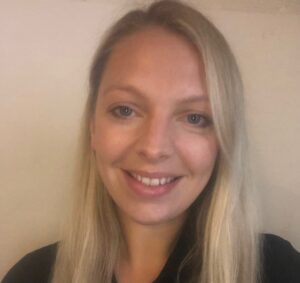
Dr Nicola Currie is a Lecturer in Psychology at Edge Hill University. Her research interests include the development of cognitive skills that support children’s reading comprehension, with a particular focus on inference generation, and exploring the relationship between reading and wellbeing. Nicola was a Research Fellow on the Leverhulme Trust Reading and Wellbeing project (2022-2024). Email: currien@edgehill.ac.uk
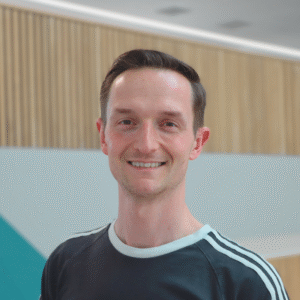
Dr Jamie Lingwood is a Senior Lecturer in Psychology at Liverpool Hope University. His research explores how shared book reading and digital media influence early communication and literacy development. He was Principal Investigator on the Love To Read Reception project, funded by the Education Endowment Foundation (EEF), and is Co-Investigator on the Nuffield Foundation funded Love to Read Phase 2 , both which embed six research-informed principles into classroom practice to foster reading enjoyment, motivation and engagement among primary school aged children. Jamie also teaches and supervises research in developmental psychology, language, and education.
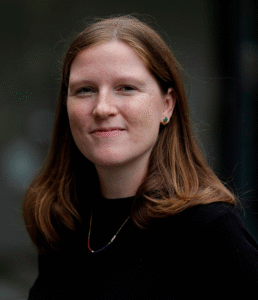
Dr Miriam McBreen is a Lecturer in Psychology at University College London, Institute of Education. Her research focuses on understanding the links between reading motivation and reading development, with a particular interest in understanding how teaching can foster motivation, engagement and learning for children with reading difficulties. Miriam is Principal Investigator on the Love to Read Phase 2 project, funded by Nuffield Foundation. She can be reached through email at miriam.mcbreen@ucl.ac.uk

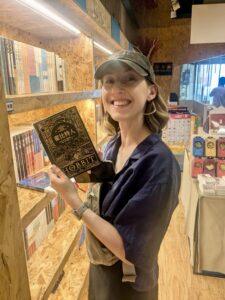
Dr Charlotte Webber is Principal’s Fellow in Autism & Neurodiversity at University of Strathclyde. She worked collaboratively with Scottish Book Trust on her PhD, The Young People’s Reading Project (2020-2024), and with other Literacy Lab members/associates and project partners on the Neurodiversity and Narrative Fiction project (2022-2023). She continues to work on research related to wellbeing, education and neurodiversity, with a strong emphasis on participatory approaches. Charlotte currently convenes the UKLA’s Participatory Approaches to Literacy Research Special Interest Group.
Alumni
 Dr Kawla Alhamad. Kawla is a Lecturer at the Special Education Department at ImamAbdulrahman bin Faisal University in Saudi Arabia (SA) and was a former PhD student in Moray House School of Education and Sport. Kawla’s PhD examined the Impact of Augmented Reality (AR) Books on the Reading Enjoyment, Engagement and Comprehension of Struggling Readers. You can learn more about her research here: https://blogs.ed.ac.uk/literacylab/current-projects/ar-books/.
Dr Kawla Alhamad. Kawla is a Lecturer at the Special Education Department at ImamAbdulrahman bin Faisal University in Saudi Arabia (SA) and was a former PhD student in Moray House School of Education and Sport. Kawla’s PhD examined the Impact of Augmented Reality (AR) Books on the Reading Enjoyment, Engagement and Comprehension of Struggling Readers. You can learn more about her research here: https://blogs.ed.ac.uk/literacylab/current-projects/ar-books/.
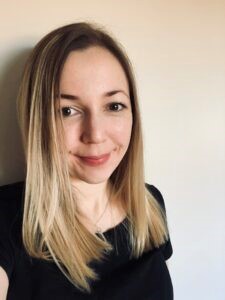
Dr Emily Oxley. Emily was a Research Fellow working on the Nuffield Love to Read project (2021-2023). Her research interests span language development and literacy education, particularly reading motivation and reading disorders. She completed an ESRC funded PhD for the White Rose Doctoral Training Centre in 2019 and has since worked as a Research Assistant on the Nuffield Foundation longitudinal project The Dynamic Assessment of Reading Test at the University of Leeds. Emily is now Lecturer at the University of Glasgow. You can find Emily on X: @Emily_EAL.

Dr Jill Steel was born in Scotland but grew up in South Africa and lived and worked in the United States before settling back in Scotland. Jill is a former Primary School Teacher and College Lecturer whose PhD research at the University of Edinburgh (2019-2022) explored the influence of Reading to Dogs on children’s reading affect and wellbeing. This research followed an MEd at the University of Glasgow (2013-2014), part of which investigated the same topic. Jill‘s interest in the field derives partly from her own experiences, and partly from observing how levels of wellbeing and reading affect impacted her students’ ability to learn and develop. An avid animal lover, Jill grew up surrounded by pets, and enjoyed reading books with animal characters. The influence of both animals and books, in supporting wellbeing and the ability to flourish, became a key interest. You can learn more about Jill’s PhD research here: https://blogs.ed.ac.uk/literacylab/previous-projects/reading-to-dogs/ and Paws and Learn® here: https://www.pawsandlearn.co.uk.
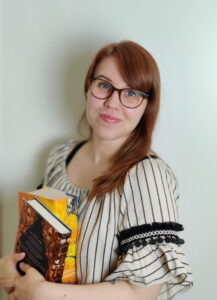
Dr Pauliina Vuorinen. Pauliina completed her ESRC funded PhD from the School of Informatics, University of Edinburgh in 2024. Pauliina used innovative observational methods to track reading behaviour while adults read on e-readers. Her PhD project studied how adults read for fun using digital devices. In particular, the project investigated how adults fit reading for fun in their daily lives, and how motivation influences reading behaviour. Pauliina was supervised by Prof Frank Keller from School of Informatics, University of Edinburgh, and Prof Ben Tatler from School of Psychology, University of Aberdeen. You can learn more about her research here: https://blogs.ed.ac.uk/literacylab/current-projects/adults-e-reading-behaviour/ Email: p.t.e.vuorinen@sms.ed.ac.uk X: @PTEVuorinen
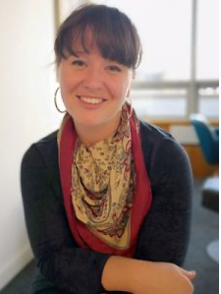
Jane Bonsall was raised in a home full of books in California, though she spent as much time as possible in Neverland, Robin Hood’s Sherwood Forest, Narnia and later Middle Earth. Impatience initially spurred Jane to learn to read, when, frustrated with her parents’ one-chapter-a-night rule, and desperate to know what happened next, she began to trying to puzzle her way through C.S. Lewis’s Prince Caspian (with mixed results). Her love of stories eventually led to a degree in English Literature, and later to a MSc in Medieval Literatures and Cultures from the University of Edinburgh, and a PhD which explored the representations of magical women in medieval literature and the interconnected nature of literature and history. Jane was a researcher on the Growing Up A Reader project.
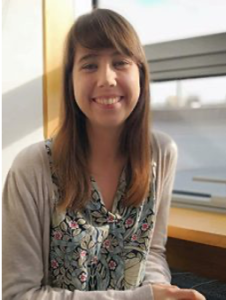
Danielle Howarth cannot remember a time when she did not love books. From her early childhood in England, through a move to Australia at age eight, and throughout the rest of her life, books have been a way of learning, relaxing, and coping for her. In times of stress, she still returns to books like The Secret Garden and Harry Potter to let their familiar words and worlds soothe her. This love of books inspired her to complete a Bachelor of Arts at the University of Sydney, after which she moved to Edinburgh to undertake an MSc in Medieval Literatures and Cultures, followed by a PhD in Medieval Studies at the University of Edinburgh. Danielle was a researcher on the Growing Up A Reader project.
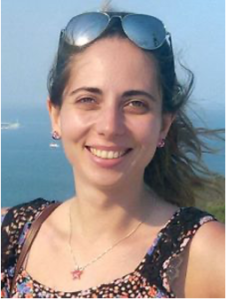
Valentina Andries was surrounded by books as a young child in Romania, having a mother who is an avid reader. Having to spend a lot of time indoors as a child due to a breathing condition, she discovered new worlds and learned about their secrets in stories described by Hans Christian Andersen. Her mother would read such stories to her daily, and then her curiosity would push her to try and learn writing the alphabet by using the books as support. Such connections between written text and stories would spark an interest in other languages, cultures and environments. This lea her to pursue an undergraduate degree at the University of Edinburgh in Languages, Literatures and Cultures, followed by a PhD in the School of Education, where she researched ways in which children’s wellbeing can be improved while in a hospital setting, by designing an interactive narrative game. Valentina was a researcher on the Growing Up A Reader project.


Comments are closed
Comments to this thread have been closed by the post author or by an administrator.